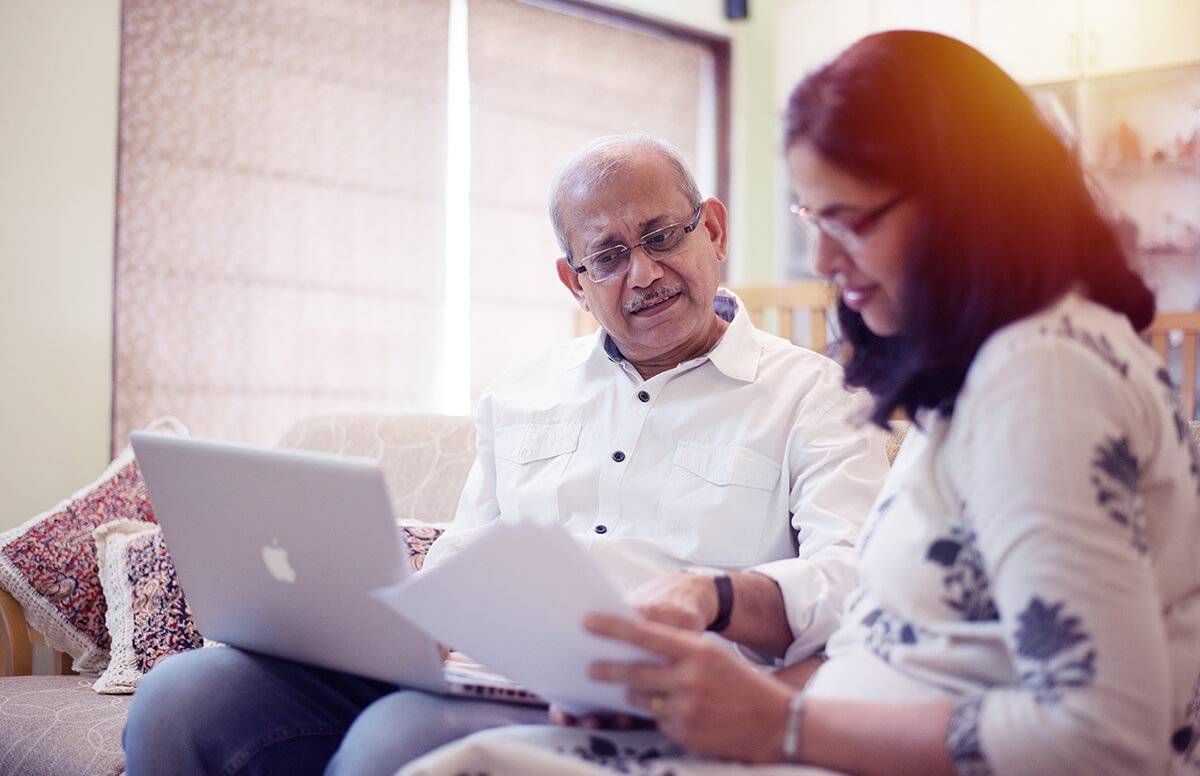How to Maintain Financial Security in Retirement
Making solid investments is important, but that’s just one facet of the equation

(Editor’s note: This content is sponsored by Acts Retirement-Life Communities.)
Retirement is your reward for an industrious life of service. After putting in decades in your chosen career, it’s time to hang up your hat, put up your feet and finally relax. Yet while transitioning into retirement means you no longer need to work for a living, it doesn’t mean your living expenses miraculously disappear. Between inflation and the cost of living, Social Security benefits are unlikely to cover all retirement living costs, so you’ll need to consider how to ensure financial stability in retirement.
Making solid investments ahead of time is one way to set yourself up for financial success, but that’s just one facet of the equation. It’s also crucial to take steps to maintain your financial security over the course of your retirement. Doing so will allow you to leverage that retirement income of yours to the fullest, providing you the financial security you need to enjoy yourself without fear and anxiety. Here’s how you can bolster that process.
Understanding Retirement Income Streams
Now that you’ve punched the time clock for the last time, your income has fundamentally shifted. Your retirement income is going to differ fundamentally from your income previously, and you’ll need to have a keen understanding of what you’ll be bringing in every month based on the types of retirement income streams you have. Knowing how much you’ll receive in Social Security benefits, for example, will enable you to plan how to spend that money on expenses that are just as regular.
Understanding your income streams during retirement will also help you identify pitfalls and provide opportunities to address them. If you understand that, between Social Security, a possible pension and other retirement savings, you’ll likely have access to a relatively stable amount of money every month. You can look into supplementing this figure with variable income like a part-time job. Other variable income, such as from a rental property you’ve invested in, can be used to bolster your financial security during retirement, but you also need to acknowledge its inherently unstable nature and not come to rely on it like you would with your stable, longer-term retirement income.
Click here to read How Much Money Do I Need to Retire?
Mandatory Expenses Versus Discretionary Expenses
You don’t need to stop having fun once you retire. Part of retirement living is enjoying all the things you might not have had time for while working, and it’s become expected that retirees often spend a portion of their retirement income on activities like travel. That being said, being able to take a long, bucket-list style vacation requires you have the resources to do so without jeopardizing your financial security.
In order to provide yourself the financial wiggle room to enjoy your retirement in this way, you may need to classify your expenses into mandatory and discretionary. You will always have expenses that must be paid, such as mortgage/property tax or rent payments, utility bills, insurance premiums, necessary home and vehicle maintenance and food. Other expenses can be negotiated. You can cut costs by eliminating or paring down on discretionary expenses in any number of ways. Going out to eat less and cutting back on the television channels in your cable package might seem like minimal ways to save, but when taken together they have a large impact — one that can help stabilize your retirement savings.
Click here to read Financial Planning Advice for Seniors.
Financial Security Through Creative Living Arrangements
One of the largest strains on your retirement budget is almost certainly going to be your living arrangements. If you own a house, there are a number of monthly costs that crop up ranging from property taxes to utility bills to routine maintenance and beyond. Modifying your home for retirement living can be an added expense as well. If you plan to age in place in your existing home, you might need to modify your home as you get older. These renovations could prove quite expensive, depending on how comprehensive they might be.
Whichever way you slice it, the upkeep and maintenance on a property that’s larger than you need can be both costly and exhausting, and that’s not good news for your financial security or mental well-being. In instances like these, you can reduce what would be otherwise a mandatory cost like homeownership by downsizing to a smaller home that will cost you less to maintain. This is an excellent way to become more financially secure. With the added bonus of using the proceeds of the sale of your existing home to bolster your budget, you can purchase a more modest home that’s already age-friendly or move into a retirement community at a fraction of the cost of your original house, then leverage the rest as retirement savings.
Want to learn more about retirement living communities and what they offer? Click here to read Does a CCRC Make Sense for You?
For more information on retirement, read these articles by Acts Retirement-Life Communities:
• Should I Sell My House When I Retire?
• What is the Average Cost of an Independent Living Community?
• What Do I Need to Retire Comfortably?

Acts Retirement-Life Communities is the largest not-for-profit owner, operator and developer of continuing care retirement communities in the United States. Headquartered in suburban Philadelphia, Acts has a family of 23 retirement communities that serve approximately 8,500 residents and employ 6,200 in Pennsylvania, Delaware, Maryland, North and South Carolina, Georgia, Alabama and Florida. For more information about Acts visit actsretirement.org.

